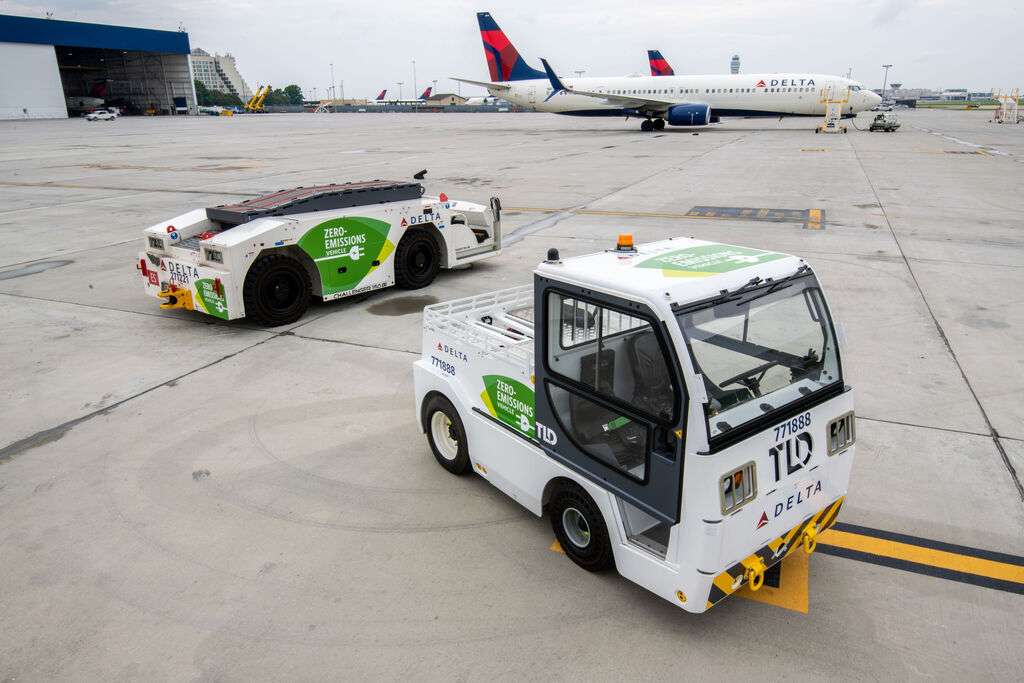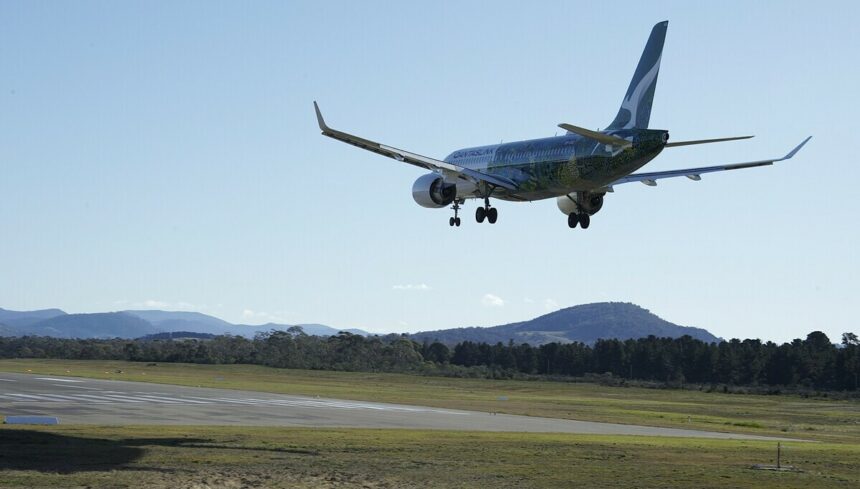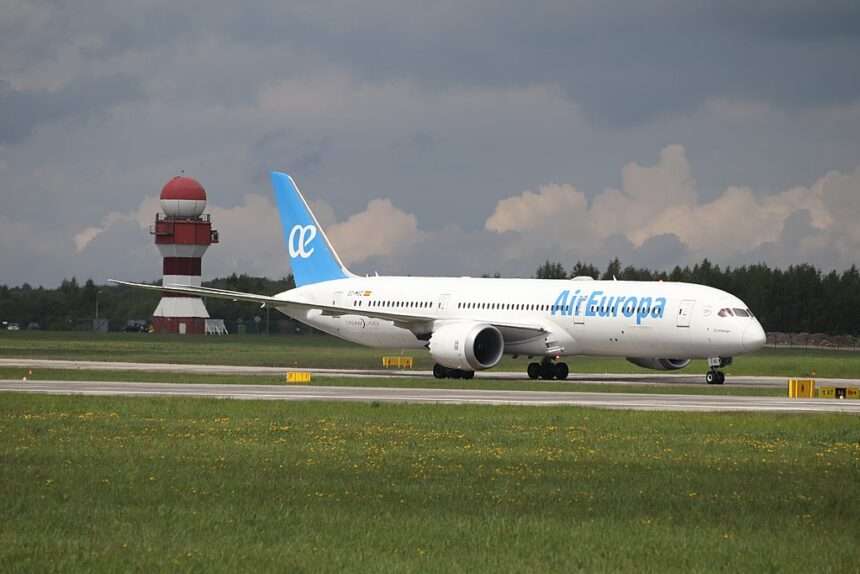In this year’s Sky Team Alliance Sustainable Flight Challenge, Delta Air Lines took home the top prize in two categories: “Lowest CO2 Ground Emissions Home Base” for electric ground support and “Best Innovation Wildcard” for several high-quality submissions.
The announcement of these wins came during a gala event attended by industry leaders and aviation enthusiasts.
Notably, Delta was not only a finalist but also a frontrunner in two other significant categories: “Best in Innovation” and “Lowest CO2 Emissions Ground Ops.”
This recognition underscores Delta’s commitment to innovation and sustainability, two cornerstones of the airline’s identity.
Innovation: A Key to Decarbonization
Innovation and collaboration have become indispensable tools in the mission to decarbonize the notoriously challenging airline industry.
These principles lie at the heart of Delta’s corporate DNA, which is why the airline eagerly participated in the second annual Sky Team Alliance’s Sustainable Flight Challenge held in May.
The challenge served as a platform for participating airlines to explore innovative approaches, enhancing sustainable travel, and advancing the industry’s collective goal of achieving net-zero emissions by 2050.
Amelia DeLuca, Delta’s Chief Sustainability Officer, emphasized the need for industry-wide cooperation in achieving these ambitious objectives:
“If we’re going to be successful in reaching our goals, players from across our industry need to be going down different paths and trying new things to see what works best. No one airline or manufacturer or supplier can do this alone.”
“What I love most about The Sustainable Flight Challenge is it gives all of us in the industry the opportunity to test new solutions, get feedback in real time from employees and customers, and compete in a collaborative way that spurs even more innovation for the sustainable future of flight.”

Putting Sustainability to the Test
The Sustainable Flight Challenge provided a unique forum for industry leaders and innovators to showcase their commitment to sustainability.
Delta participated in the challenge with a focus on using its most fuel-efficient aircraft, conducting roundtrip flights from Los Angeles to Atlanta (medium-haul domestic) on May 17 and Atlanta to Paris (long-haul international) on May 23.
The efforts of participating airlines were assessed by a distinguished panel of judges, including Steven Barrett, a professor of aeronautics and astronautics at the Massachusetts Institute of Technology, Dr. Fang Liu, former Secretary General of the International Civil Aviation Organization, and Tom Williams, former Chief Operating Officer of Airbus.
Delta’s Winning Actions
Delta Air Lines demonstrated a commitment to sustainability through a series of initiatives, all contributing to its “Best Innovation Wildcard” victory:
Electrifying Ground Support Equipment (GSE)
Delta led the charge by utilizing 100% electric ground support equipment for its challenge flights in Atlanta and Los Angeles, the departure and arrival locations for some test flights.
This move not only showcased their dedication to sustainability but also had tangible benefits for Delta employees and local communities.
The electrification of GSE resulted in improved air quality, reduced hazardous waste, and lower noise pollution.
Delta has set ambitious goals for the future, aiming for 100% electrification of its core GSE fleet, which includes baggage tractors, belt loaders, and aircraft tow tractors, in five major hubs by 2025. Salt Lake City and Boston are already well on their way to achieving this milestone.

Minimizing Waste Onboard
Delta’s crew took a proactive approach to reduce waste by separating items like reusable cups and recyclable materials from general waste.
This effort contributes to Delta’s broader objective of achieving a 65% waste diversion from landfill by 2035.
Remarkably, the LAX-ATL test flight set a new standard by achieving zero-waste status, with over 90% landfill diversion for onboard products achieved through composting, reusing, and recycling. This accomplishment solidified Delta’s position as a leader in overall innovation.
Reducing Potable Water in the Air
Delta embarked on a weight-saving initiative by testing the reduction of potable water loaded onto aircraft. This strategy aimed to make flights lighter without compromising safety or passenger experience.
The results were impressive, with the company saving over 1,100 pounds of water weight, translating into approximately 1,200 pounds of CO2 emissions saved.
Using Sustainable Aviation Fuel (SAF)
In another groundbreaking move, Delta partnered with U.S.-based SAF startup Gevo and Finnish company Neste to source and deliver 8,000 gallons of Sustainable Aviation Fuel (SAF) to Atlanta and Los Angeles airports.
This initiative represents a significant step toward reducing the airline’s carbon footprint and promoting sustainable alternatives within the aviation industry.

Click the banner to subscribe to our weekly newsleter.









